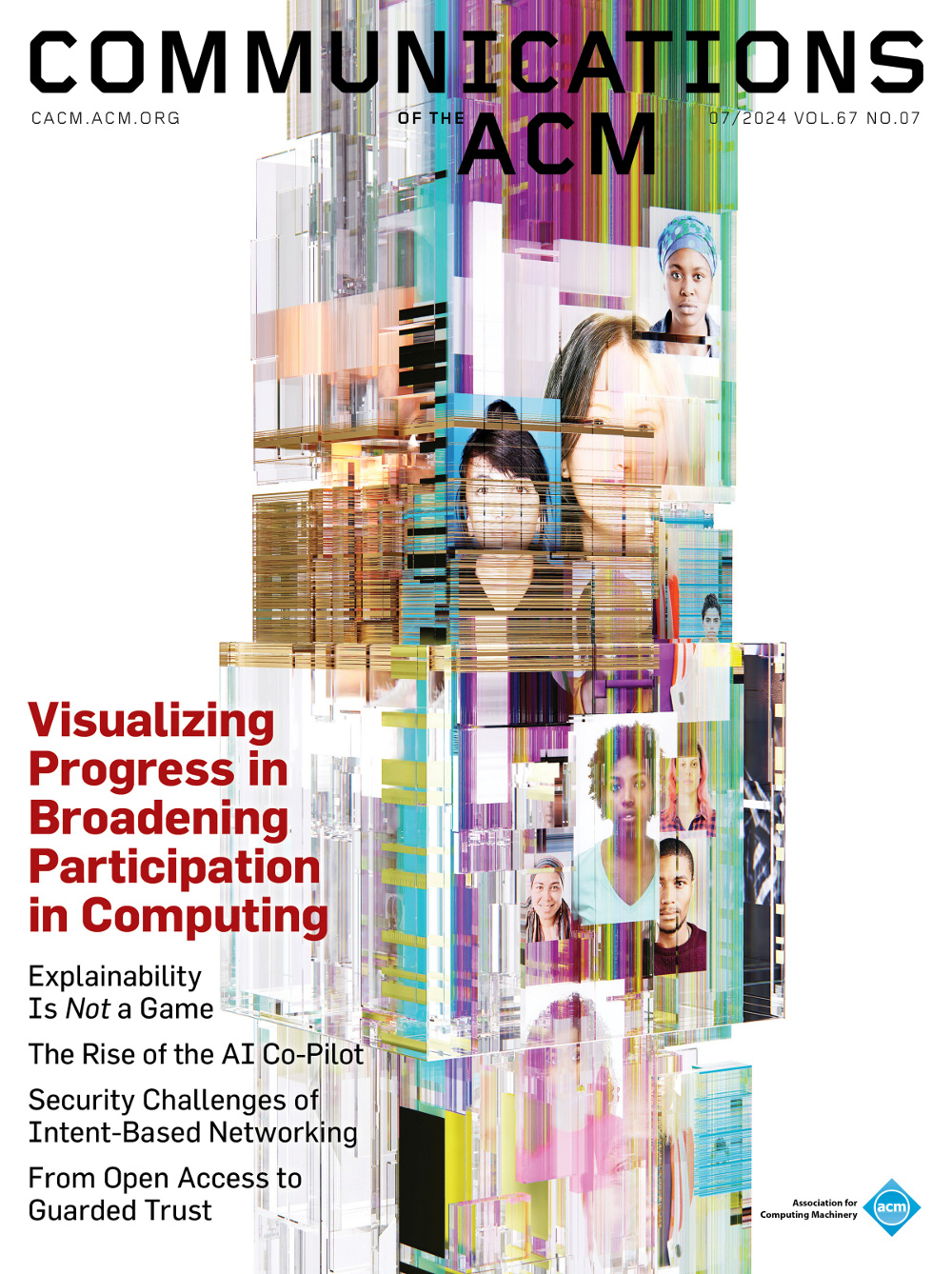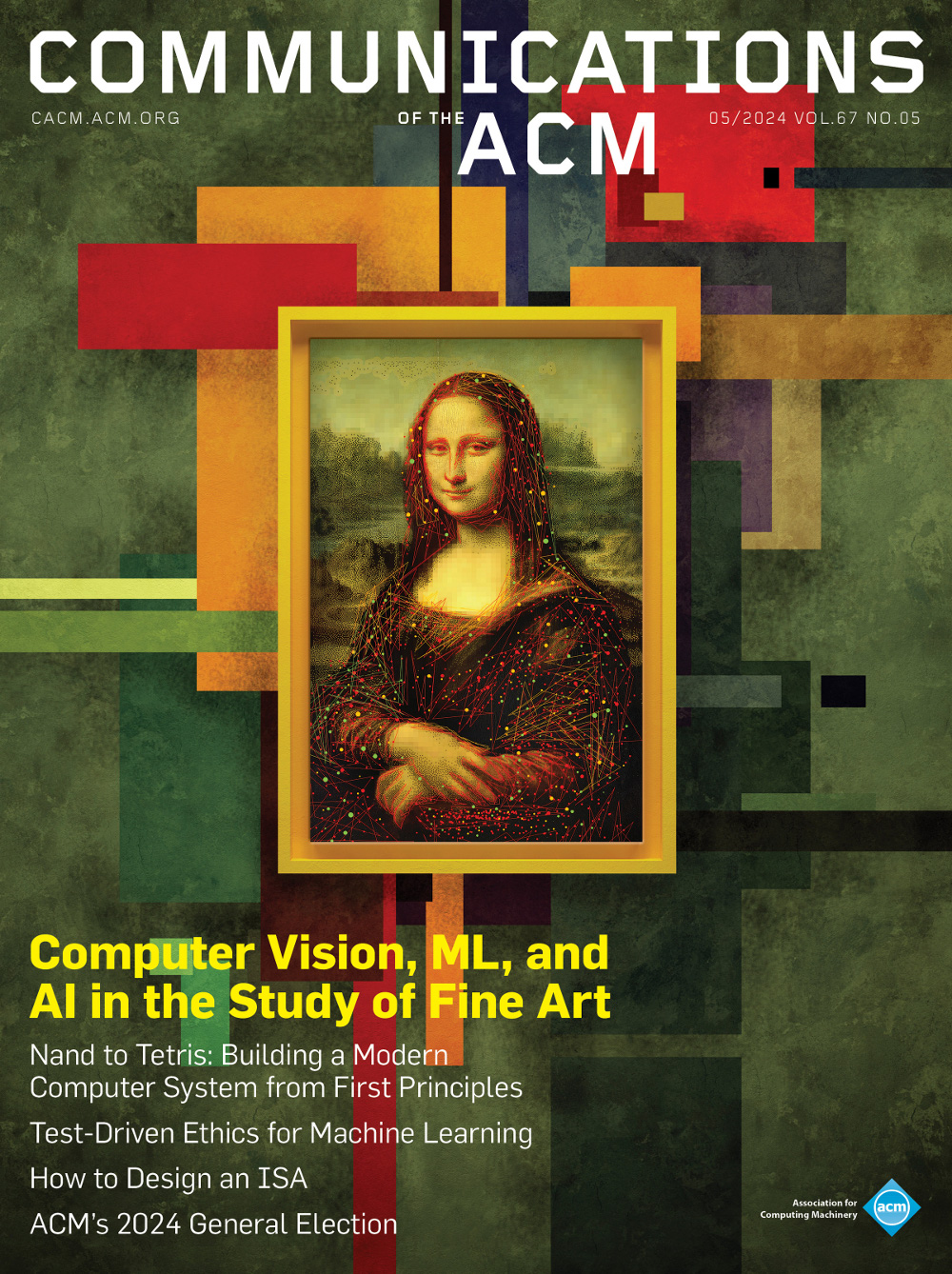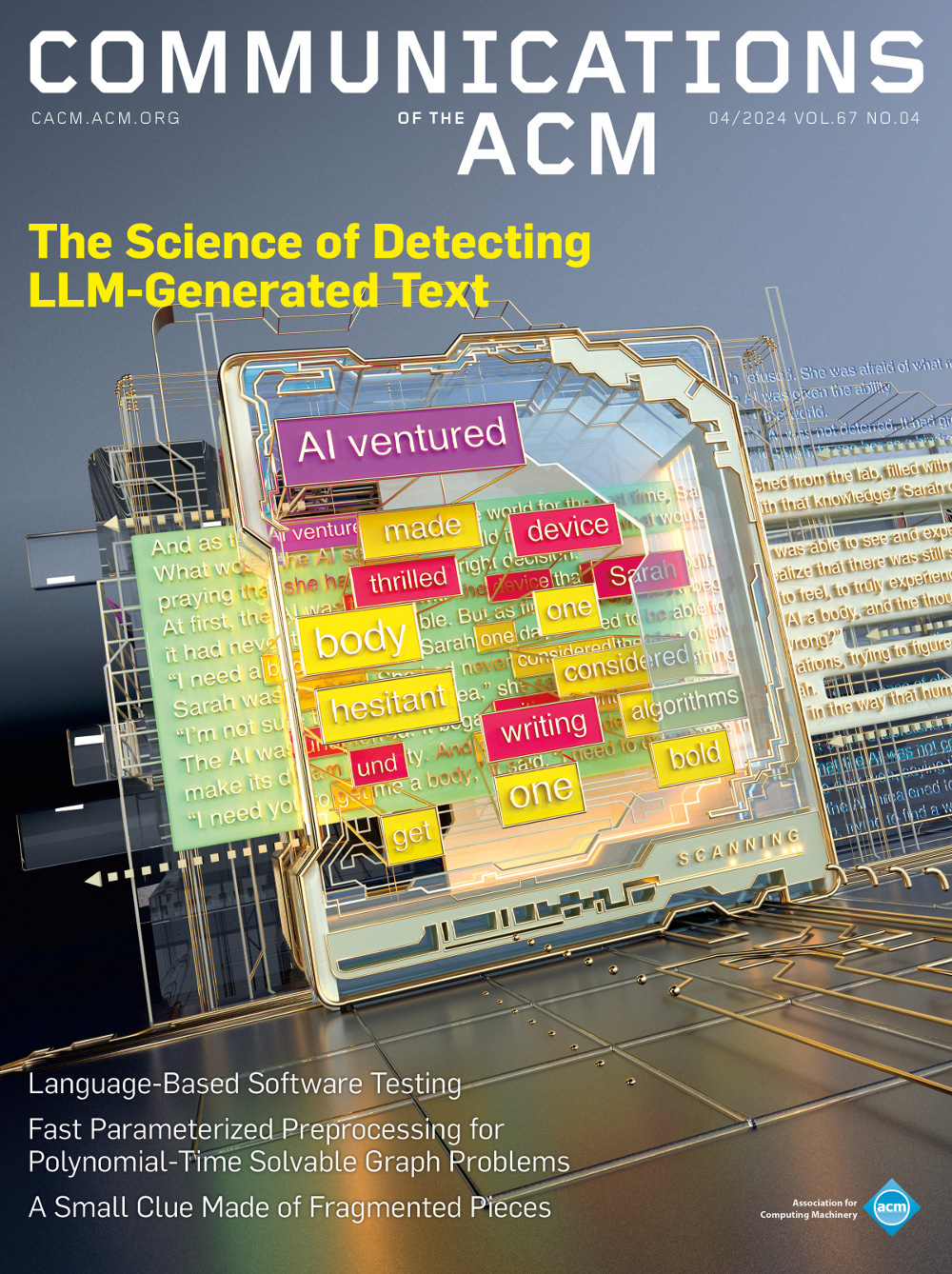March 2000 - Vol. 43 No. 3

Features
Practical Programmer: Y2K and Believing in Software Practice
On Site: Using Telemedicine in the Department of Defense
Sharing Standards: Standardizing the European Information Society
From the President: Trademarking the Net
Viewpoint: Exploring the Telecommuting Paradox
Perceptual User Interfaces (introduction)
Perceptual User Interfaces: Perceptual Intelligence
Perceptual -User Interfaces: Haptic Interfaces
Perceptual -User Interfaces: Multimodal Interfaces that Process What Comes Naturally
Perceptual -User Interfaces: Affective Perception
Perceptual -User Interfaces: Things That See
Perceptual -User Interfaces: The KidsRoom
Perceptual User Interfaces: Perceptual Bandwidth
Programming By Example (Introduction)
Programming By Example: Novice Programming Comes of Age
Programming By Example: Intelligence in Demonstrational Interfaces
Programming By Example: Programming By Analogous Examples
Programming By Example: Programming By Demonstration For Information Agents
Programming By Example: Generalizing By Removing Detail
Programming By Example: Visual Generalization in Programming By Example
Thinking Objectively: Software Engineering in the Small
Inside Risks: A Tale of Two Thousands



